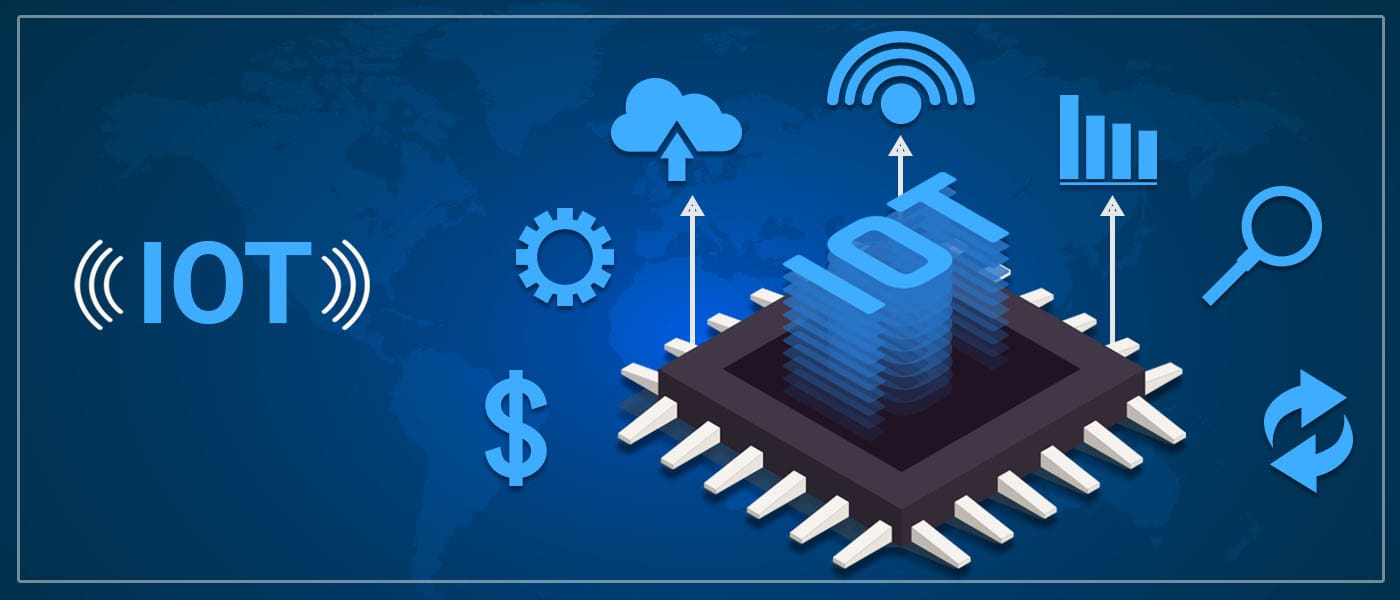IoT, also known as the internet of things, is an industry 4.0 technology. Just as the name mentions, it connects things or devices, building up a massive network. Here devices collect and share data.
Its data sharing process makes the system effective wherever used in an organizational setup.
The industrial IoT market would grow to $123. 89 billion in 2021.
It shows that a good number of organizations are realizing the importance of internet of things in their process.
How do you define industrial IoT or IIOT?
This process involves implementation of internet of things in different industries. It needs a higher version of IoT with enhanced features to generate desired results for organizations.
Enterprises can handle all their operational activities with ease. Now industries here need to focus on scalability, availability and security. IIOT takes the help of sensors and actuators for enhancing the entire industrial process.
How do devices work in internet of things?
The objects here with built-in sensors are connected with an IoT platform. The devices all have unique identifiers. Now the unique thing about IoT is not necessarily you need to have an internet connection for best functioning; for example, in off-grid electricity production and during farming, you can use seamlessly use IoT sans internet.
Which are the industries to benefit from IoT?
The industries that are using IoT are aviation industry, transportation industry, manufacturing industry, mining and metals and many others.
How does IoT help small and mid-sized businesses?
Small and mid-sized businesses face major challenges in their process as compared to large enterprises. IoT as a technology helps in streamlining their process. One can take the example of mid-sized retail. Now we all know, that retail businesses face some or the other theft, and as a human, nobody can’t be that vigilant to stop it. This is where IoT can play its role.
Owners can monitor the activities in their store with the help of connected devices through IoT. If they found any such suspicious activities, they could take necessary actions.
Use cases of IoT:
- Agriculture IoT system:
IoT can be used in agriculture rightly. In many cases, it’s already being used and is known as smart farming. The entire process helps in best food production. The farmers here get maximum benefits; they get insights, such as what fertilizers should be used, what should be the moisture in soil and many other such activities.
- Drones and internet of things:
Drones have found an important place in photography, research, medical purpose and other activities. These drones have features such as GPS for location information. They have temperature sensors that can locate different beings. With the wide usage of working drones, these systems are designed to work in different environmental conditions. They have a good number of propellers.Don’t be surprised if you start getting your Amazon orders from these drones in the coming years.
- IoT and businesses:
The internet of things in many organizations can be used to find relevant information and optional components; for example, if you’re into manufacturing business, you can get an absolute idea of what components you’d need for your business process.
Benefits of IoT:
- Helps in operation management
- Improved customer satisfaction
- Optimized usage of resources
- Cost effective activities
- It can enhance the data collection method
- It reduces the human intervention
- Organizations need not employ more workforce
- IoT gives the right capabilities so that businesses can predict the possible future and act accordingly.
- You can plan for new services and products
- It increases ease of access
Are there any disadvantages of IoT?
Some of the disadvantages of IoT are:
- Complexity: IoT could increase complexity. To develop and further look over the entire process requires a complicated connection between all the devices. It requires appropriate enabling of all devices.
- Difficult set-up: As it is complex, the initial set-up process could prove challenging for organizations. So, they need to look into it.
- Security: There are challenges in network security.
- Privacy: IoT could increase the risk to privacy
Conclusion:
IoT would make functioning easier in an organization. In retail, they could watch out for their stock and even plan if it runs out of any product. But in some organizations, this technology is seen as the major cause of unemployment, as it reduces human involvement.
But its advantages outweigh the disadvantages.
Therefore, the solution is increasingly adopted in many organizations, and in future, would help businesses to achieve immense success.

